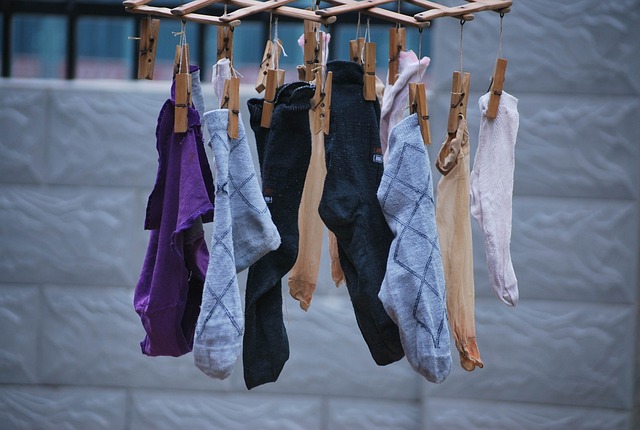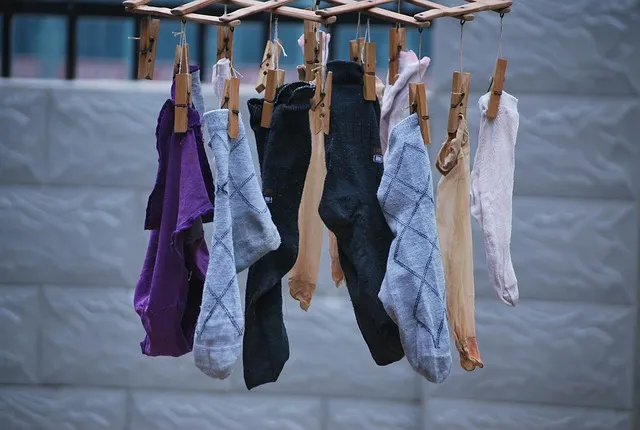How Do Commercial Dryers Compare to Residential in Energy Efficiency?
Let’s dive into it. Commercial dryers, which you typically find in laundromats or large facilities, are built to handle heavy loads and continuous use. They often come with advanced technology designed to optimize energy use. For instance, many commercial dryers feature high-efficiency heating elements and advanced moisture sensors that adjust drying times based on the load’s moisture level. This means they can cut down on unnecessary drying time, which translates to less energy consumed.
On the flip side, residential dryers are designed for the average household load and tend to have a more straightforward approach to energy use. While modern residential dryers are increasingly incorporating energy-efficient technologies, such as heat pump systems and improved insulation, they still generally have lower capacity compared to commercial models. This means that for large loads or frequent use, residential dryers might use more energy per load because they’re not optimized for high-volume efficiency.
Think of it this way: commercial dryers are like high-performance sports cars—they’re built for speed and efficiency under heavy use, while residential dryers are more like family sedans, efficient enough for everyday use but not designed for the heavy-duty demands of a laundromat.
In practice, this means if you’re running a business or have a large family with frequent laundry needs, a commercial dryer might be the better choice for energy efficiency. They’re engineered to handle the load and optimize energy use in a way that residential dryers generally aren’t.
Commercial vs. Residential Dryers: Who Wins the Energy Efficiency Battle?
Residential dryers are designed with home use in mind, balancing convenience with energy use. They come with a range of features like moisture sensors that help optimize drying time, which sounds great but often means they take longer to get your clothes ready. Think of them as the family sedan—reliable and efficient for everyday use but not necessarily built for high performance.
On the flip side, commercial dryers are the big rigs of the drying world. These machines are built to handle large loads and constant use, making them a powerhouse in terms of energy efficiency. Their larger capacity means fewer cycles and faster drying times, which translates to less energy spent overall. It’s like comparing a high-speed train to a local bus—both get you where you need to go, but one does it much faster and with fewer stops.
One crucial aspect to consider is the type of dryer. Many commercial dryers use gas, which can be more efficient than electric dryers used in homes. This can make a significant difference in energy consumption, especially for businesses with heavy-duty laundry needs. Imagine trying to dry a pile of towels with a hairdryer versus a commercial-grade blower—there’s a clear winner in terms of speed and efficiency.
So, who wins the energy efficiency battle? It often comes down to your needs. For a household with moderate laundry needs, a well-maintained residential dryer might do just fine. But if you’re running a business or have a large family, investing in a commercial dryer could be the smarter, more energy-efficient choice in the long run.
The Energy Efficiency Showdown: Commercial Dryers vs. Home Appliances

Commercial dryers are like the heavyweights in this arena. They’re designed to handle massive loads with ease and, in doing so, they often have advanced technology that maximizes energy use. These machines are built to last and perform efficiently under high demand, which can translate into savings on your utility bills over time. Think of them as the race cars of the drying world—they’re fast and powerful, engineered for top performance.
On the flip side, home appliances might seem like the underdogs, but they pack their own punch. Modern residential dryers are increasingly being designed with energy efficiency in mind. Many come equipped with features like moisture sensors and energy-saving modes that adjust drying times to minimize power consumption. Imagine them as the sleek hybrids—less flashy but incredibly smart and economical, perfect for the everyday needs of a household.
So, how do these two stack up against each other? It often comes down to scale and specific use. If you’re running a laundromat or a large household with frequent laundry needs, the robust capabilities of a commercial dryer could be more cost-effective in the long run. However, for a typical home with average laundry loads, a well-designed residential dryer can do the job efficiently without wasting energy.
In essence, whether you’re drawn to the industrial might of commercial dryers or the smart, eco-friendly tech of home appliances, the key is to find what best fits your needs and lifestyle. Both have their strengths, so it’s all about aligning their features with your personal or business requirements.
How Do Commercial Dryers Stack Up in Energy Efficiency Against Home Models?
Commercial dryers are designed for heavy-duty use. Think of them as the workhorses of the laundry world. They’re built to handle a constant stream of large loads with the goal of keeping up with high demand. Because of this, commercial dryers are engineered to be powerful and, often, more energy-efficient than home models. Why? They incorporate advanced technologies that focus on reducing energy consumption while maximizing drying performance. For instance, many commercial models use optimized airflow systems and high-efficiency heating elements, which help to cut down on energy use while speeding up the drying process.
On the flip side, home dryers are generally built for lighter, less frequent use. While they do incorporate some energy-saving features, they often lack the high-efficiency components found in their commercial counterparts. Home dryers might offer settings like moisture sensors and eco-friendly cycles, but they usually aren’t as aggressive in their energy-saving measures.
Imagine commercial dryers as marathon runners, equipped with every possible advantage to sustain long-distance runs with minimal energy waste. Home dryers, meanwhile, are like casual joggers, efficient for short bursts but not necessarily designed for prolonged, high-intensity performance.
So, when it comes to energy efficiency, commercial dryers often outshine their home counterparts, thanks to their robust design and advanced technology. If you’re running a business or have a household with high laundry demands, investing in a commercial model might just be the way to go for both performance and energy savings.
Residential Dryers vs. Commercial Machines: Which Is More Eco-Friendly?
Residential dryers are like your everyday sedan—compact, efficient, and designed for personal use. They’re generally built to handle smaller loads, making them ideal for typical household needs. These machines usually have Energy Star ratings and use advanced technologies to minimize energy consumption. Think of them as your personal eco-warrior, doing their part to reduce your carbon footprint while keeping your laundry fresh.

On the other hand, commercial dryers are like heavy-duty trucks. They’re built for bulk, designed to handle larger loads and withstand constant use in laundromats or hotels. Their high-capacity and robust construction mean they can dry more clothes in less time compared to residential models. But here’s the catch: they often consume more energy per load due to their larger size and higher power demands. It’s a bit like driving a truck for short errands—you’re using more fuel than you would in a car.
Now, let’s dive into the real eco-friendly difference. Residential dryers, with their advanced, energy-efficient features, generally have a smaller environmental footprint when used properly. They’re designed to work efficiently with smaller loads, reducing both energy and water usage. Conversely, while commercial dryers can be more efficient for high volumes, their overall energy consumption is higher. If you’re running a small-scale operation or just doing laundry at home, residential units are usually the greener choice.
So, when weighing eco-friendliness, consider your usage patterns. For daily household chores, a modern residential dryer is likely to be your best bet for reducing environmental impact.
Energy Efficiency Face-Off: Commercial Dryers vs. Residential Units
Commercial dryers are powerhouses. They’re built for speed and efficiency, able to dry large loads quickly and with less energy than you might expect. Think of them as the high-speed train of the laundry world. They often come with advanced features like moisture sensors and multiple drying cycles, which can optimize energy use and cut down on drying time.
On the flip side, residential dryers, while generally less powerful, offer a range of options that cater to home needs. They’re designed to be energy-efficient, but on a smaller scale. Imagine them as your trusty bicycle: reliable, efficient, but not built for high-speed adventures. Many modern residential units come with energy-saving modes and are built to handle smaller loads with finesse, making them ideal for everyday family life.
When it comes to cost, commercial dryers can be an investment, but they offer durability and lower long-term energy costs due to their efficiency. Residential units might be easier on the wallet upfront, but their energy consumption can add up over time if used heavily.
Ultimately, your choice boils down to your laundry demands and budget. If you’re handling high volumes or need heavy-duty performance, a commercial dryer could be the way to go. If you’re looking for a reliable, cost-effective option for a smaller household, a residential unit might be your best bet.

